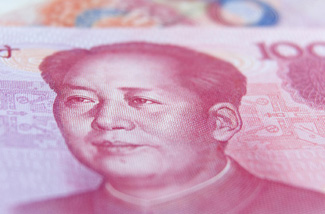In China, new agreement of foreign ownership limit has increased
 China will allow more foreign ownership in domestic joint venture securities firms to trade commodities and financial futures in a move to liberalize the country’s capital markets, Reuters reports.
China will allow more foreign ownership in domestic joint venture securities firms to trade commodities and financial futures in a move to liberalize the country’s capital markets, Reuters reports.Last Friday, at the fourth Strategic and Economic Dialogue between China and the United States, Beijing agreed to raise the ownership cap from 33 to 49 percent and will start to apply it with immediate effect.
” It will provide important opportunities and again help to strengthen China’s capital markets,” a U.S. official said, on the condition of anonymity.
Permitting the expansion of brokerage activities into the commodities and financial derivatives markets is one step further in diversifying China’s capital markets, the official said.
“We see it as (part of) a bigger pattern that will signal a continued shift toward more opening and liberalization of the financial sector, which again we see as connected to a broader reform agenda,” the official added.
Reforms are ready to be rushed out over the next 12 months to boost two-way capital flows, drive diversification of business finance and accelerate corporate currency hedging, sources in close, direct contact with the People’s Bank of China (PBOC) and the China Securities Regulatory Commission (CSRC) told Reuters in late April.
Opening up its currency regime, by widening the daily onshore trading band for the yaun to 1 percent, was a milestone step for Beijing. The move underlines its desire to reforms designed to ease speculative pressures in the economy and rebalance capital flows, while taking the country closer to its goal of a basically convertible yuan to 2015.
China’s promises on liberalizing the financial sector dovetail with a campaign by Guo Shuging, head of the securities regulator, to clean up and modernize the country’s capital markets. Earlier this year, Guo allowed greater participation by foreign firms in China’s securities markets as part of that effort.
“This is a gesture that China is willing to open its financial industry further to foreigners, and follow what happened in China’s mutual fund industry,” Liang Jin, an analyst at Guotai Juan Securities, told Reuters.
You can return to the main Market News page, or press the Back button on your browser.

